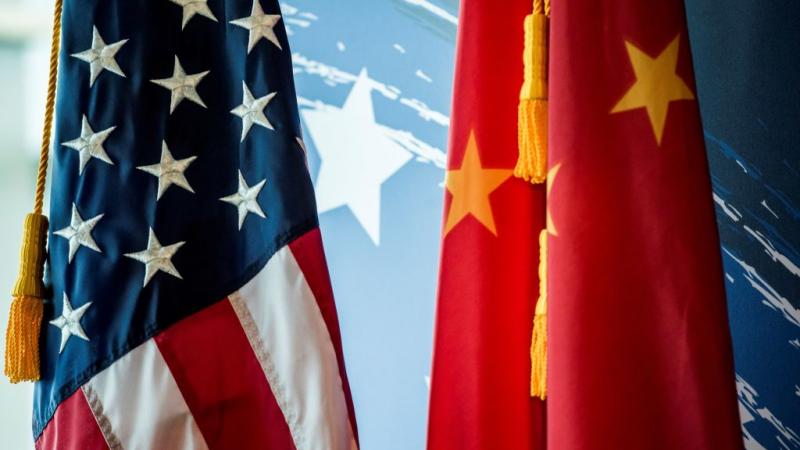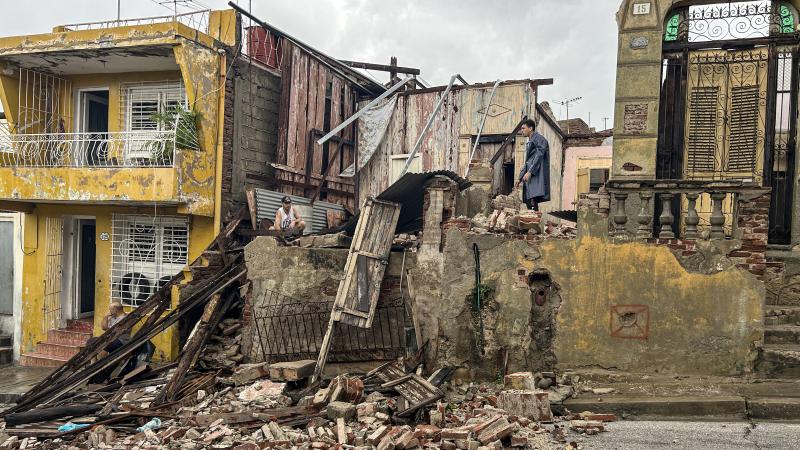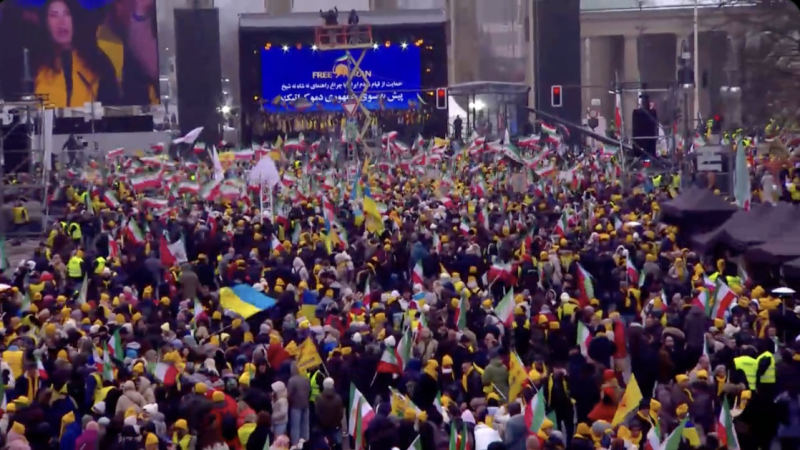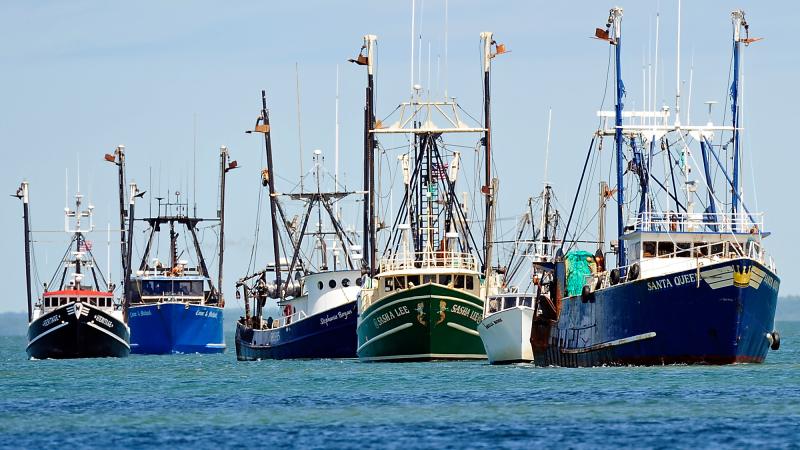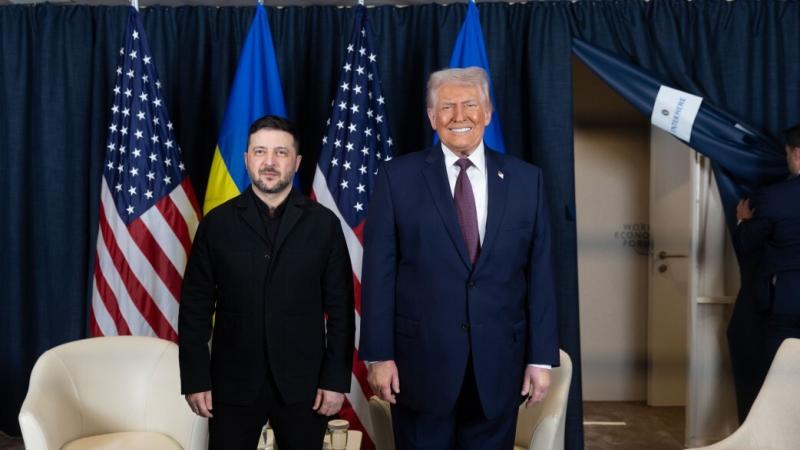How Europe could prolong Israel-Hamas war by recognizing a Palestinian state
Hamas leaders are likely to be emboldened to carry on fighting by French and British proposals to recognize a Palestinian state in a break with Trump.
Frustrated by the deadlocked peace negotiations between Israel and Hamas, and seeing the chances of a two-state solution slipping away, several European countries led by the United Kingdom and France have now promised to recognize an independent Palestinian state to reaffirm their commitment to a permanent settlement.
However, far from encouraging a ceasefire in the conflict that has raged in the Gaza Strip for nearly two years, European efforts will only encourage Hamas to continue fighting, prolonging the conflict that has devastated Gaza, Trump administration officials and experts warn.
“You’re rewarding Hamas if you do that. I don’t think they should be rewarded,” President Donald Trump told reporters aboard Air Force One earlier this week while returning from a trip to Scotland.
Trump also previously criticized French President Emmanuel Macron’s July 24 vow to officially recognize a Palestinian state while downplaying the impact that European countries would have on the ongoing ceasefire and hostage negotiations, saying it wouldn't “change anything.”
“The president expressed his displeasure and his disagreement with the leaders of France, the United Kingdom and Canada,” White House press secretary Karoline Leavitt told reporters at a press briefing Thursday. “He feels as though that’s rewarding Hamas at a time where Hamas is the true impediment to a ceasefire and to the release of all of the hostages.”
France and Britain, erstwhile global powers that have declined in importance under the American security umbrella, nevertheless hold some weight in the Middle East, a region previously colonized by the two countries following the First World War. Both countries have long advocated for a two-state solution, a proposal that would see an independent Israel and Palestine coexist alongside one another as homelands for their respective peoples.
But the ongoing war between Israel and Hamas, which is a designated terrorist group in the United States, has brutalized the notion that a peaceful coexistence is within immediate reach. Despite attempts by the United States to mediate a hostage rescue and ceasefire, negotiations between the sides have stalled, with no end to the conflict in sight.
Both the French and the British argue that moving to formally recognize a State of Palestine in the coming months – teaming up with Saudi Arabia and a coalition of Arab states – is important for charting a path forward for a post-conflict Gaza and West Bank that preserves the dream of a two-state solution.
“[The] prospect of two states, whose rights are recognized and respected, is in mortal danger,” said French Minister for Europe and Foreign Affairs Jean-Noël Barrot at a United Nations conference on the Palestinian issue July 28.
“It is threatened by the barbaric attack of 7 October,” it is “Threatened by the unprecedented savagery and cruelty that Hamas terrorists unleashed,” and “Threatened by the shameful fate of the hostages who are still being held,” continued Barrot, referring to Hamas's Oct. 7, 2023, terror attack on Israel.
But, it is also “threatened by the indefinite prolongation of Israel’s military operations in Gaza, launched in turn, which have long since ceased to have any military or political justification,” Barrot added, placing blame on Israel for mass displacement of Gazan civilians, destroyed places of worship, schools, hospitals and poor distribution of humanitarian aid.
The two-state solution “is about to give way to perpetual confrontation,” he also said. “That is something that France simply cannot resign itself to.”
The following day, United Kingdom Prime Minister Kier Starmer echoed the French minister, warning that a permanent peace settlement between the two sides is “under threat” by the ongoing conflict.
Starmer vowed that the United Kingdom would recognize an independent Palestinian state at the UN General Assembly meeting in September if the Israelis and Hamas do not make meaningful progress towards a ceasefire that includes Hamas releasing hostages, Israel increasing access to humanitarian aid, and Israel agreeing to commit to “a long-term, sustainable peace, reviving the prospect of a Two-State Solution.”
But, President Trump and his diplomatic officials have pushed back on this Europe-led effort to recognize a Palestinian state, characterizing it as unproductive at best and a gift to Hamas at worst. Ultimately, they view the European effort as more likely to prolong the conflict rather than bring about a peaceful outcome.
Secretary of State Marco Rubio says the decision to recognize a Palestinian state later this year if no ceasefire is reached only encourages Hamas to obstruct any negotiations in the meantime.
“If Hamas refuses to agree to a ceasefire, it guarantees a Palestinian state will be recognized by all these countries in September,” Rubio said in an interview on Fox News Radio on Thursday. “So they’re not going to agree to a ceasefire. I mean, it’s so clumsy.”
By threatening to recognize a Palestinian state to spur peace negotiations, France and Britain are placing pressure on the wrong party. According to the Trump administration, Hamas is the main party stalling negotiations, while Israel has shown a willingness to make concessions to achieve a ceasefire.
David May, a senior research analyst at the Foundation for Defense of Democracies who focuses his research on Israel and Palestine, told Just the News that “Hamas will only compromise when it feels intense pressure and when it thinks that continued fighting would present an existential danger to the group” because the group is primarily motivated by destruction of the Israeli state.
“Almost immediately after European support for recognizing a Palestinian state started dominating headlines, Hamas began changing agreed-upon ceasefire terms and introducing new demands,” May said. “When Europe places all the demands on Israel and doesn’t condition them on requirements of Hamas, the Iran-backed terrorist group just has to sit back and let European pressure do the work for it.”
The day after French President Macron vowed to recognize a Palestinian state, ceasefire and hostage negotiations with Hamas broke down over what the United States said was Hamas’s unwillingness to negotiate. The United States and Israel announced they were pulling out of the talks with Hamas because the American president said the group “didn't want to make a deal.”
“I think they want to die. And it's very bad. And it got to be to a point where you're going to have to finish the job,” President Trump told reporters. Trump’s chief negotiator Steve Witkoff also blamed Hamas for the breakdown.
It is unclear whether the terror group was made aware of the French president’s announcement before it submitted the latest ceasefire proposal, which was unacceptable to the Israeli and U.S. negotiators.
Nevertheless, the European support for a Palestinian state appears to have emboldened the group. Hamas later praised the French and British promises of Palestinian recognition, even though both countries said that it would be unacceptable for the terror group to remain in control of the Gaza Strip.
“Any effort made at the international level to support our Palestinian people and their legitimate rights is appreciated and welcomed,” Hamas said in a statement. The group also demanded the “unconditional recognition” of a Palestinian state, the New York Times reported.
May said that the European intervention would end up having the “opposite effect” from what they intended.
“Rather than empowering moderate Palestinians, as the Europeans hope would happen, it would have the opposite effect,” May said. “Not only is there no credible moderate Palestinian leadership, this action as a result of a war Hamas started would prove to the Palestinians that they can only achieve independence through violence, and Hamas will be crowned as the deliverer of Palestinian statehood.”
The Facts Inside Our Reporter's Notebook
Links
- Trump told reporters aboard Air Force One
- previously criticized
- Macronâs vow on July 24
- told reporters at a press briefing
- designated terrorist group
- said French Minister for Europe and Foreign Affairs Jean-Noël Barrot
- echoed the French minister
- Rubio said in an interview
- the main party stalling negotiations
- primarily motivated by destruction of the Israeli state
- ceasefire and hostage negotiations with Hamas broke down
- told reporters
- said in a statement
- also demanded

